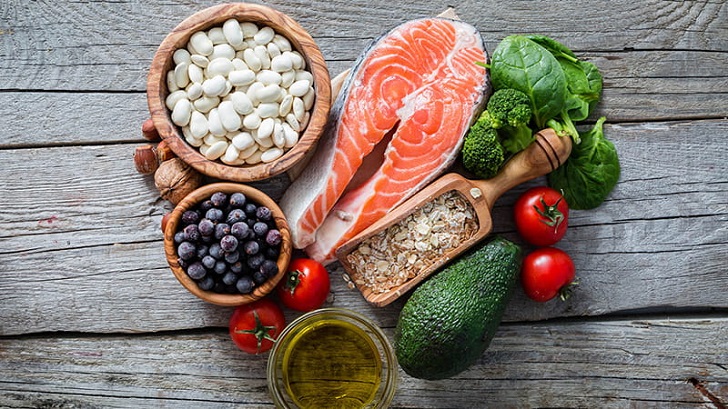As we age, our bodies undergo a variety of changes that can affect our nutritional needs. It’s important to understand these changes in order to maintain a healthy and balanced diet throughout our lifespan.
Calories
As we age, our metabolism slows down, which means we require fewer calories to maintain our weight. This is because we lose muscle mass, and our body’s fat-to-muscle ratio changes. Additionally, our level of physical activity tends to decrease as we age.
Therefore, it’s important to adjust our calorie intake to reflect these changes. Eating a diet that’s rich in nutrient-dense foods and lower in calories can help maintain a healthy weight and support overall health.

Heart/ Pinterest | You don’t have to eat less. You just have to eat right
Protein
Protein is essential for maintaining muscle mass, but our bodies become less efficient at using dietary protein as we age. It’s recommended that older adults consume at least 1 to 1.2 grams of protein per kilogram of body weight per day. This is higher than the recommended intake for younger adults. Foods that are high in protein include lean meats, fish, eggs, dairy products, beans, and nuts.
Vitamins and Minerals
As we age, our bodies may absorb specific vitamins and minerals less efficiently. For example, older adults may have more difficulty absorbing vitamin B12, which can lead to deficiencies. It’s important for older adults to consume foods rich in these nutrients and consider taking supplements as needed.
Good sources of vitamin B12 include animal products such as meat, fish, and dairy, while calcium can be found in dairy products, leafy greens, and fortified foods.
Fiber
Fiber is important for maintaining healthy digestion and reducing the risk of chronic diseases such as heart disease, diabetes, and cancer. Our bodies may require more fiber to maintain healthy digestion as we age. Good sources of fiber include fruits, vegetables, whole grains, and legumes.

WHO/ Getty Images | Whatever your problem is, the answer is not in the fridge
Water
As we age, our bodies may become less efficient at regulating fluid levels, which can lead to dehydration. It’s important to stay hydrated by drinking plenty of water and consuming foods with a high water content, such as fruits, vegetables, and soups.
Sodium
As we age, our bodies become less efficient at processing sodium, leading to high blood pressure and an increased risk of heart disease. It’s recommended that older adults limit their sodium intake to no more than 1,500 milligrams per day. This can be achieved by choosing low-sodium options, avoiding processed foods, and using herbs and spices to add flavor to food.
Healthy Fats
Healthy fats such as omega-3 fatty acids are important for maintaining brain function and reducing the risk of heart disease. Good sources of healthy fats include fatty fish, nuts, seeds, and avocado.

Heart/ Pinterest | Your life doesn’t get better by chance. It gets better by change
Individual Needs
It’s important to consider individual needs and preferences regarding nutrition. For example, older adults with difficulty chewing or swallowing may require softer or pureed foods, while those with chronic conditions such as diabetes may need to be mindful of their carbohydrate intake.
Consulting with a healthcare provider or registered dietitian can help identify individual nutritional needs and develop a personalized nutrition plan.








